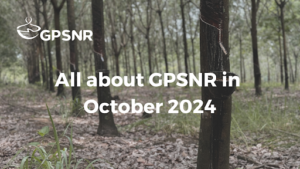Sri Trang Agro-Industry joins 23 other rubber producers, processors and traders at GPSNR to make the industry-wide transition to sustainable natural rubber
We are pleased to welcome Sri Trang Agro-Industry as the newest member of GPSNR’s growing community.
The Global Platform for Sustainable Natural Rubber (GPSNR) proudly announces the addition of Sri Trang Agro-Industry Public Company Limited (STA) as its newest member in the Producers, Processors and Traders category. STA, a leading fully integrated natural rubber company established in 1987, brings with it a solid commitment to the industry’s transition towards the sustainable and equitable production of natural rubber at scale. With large-scale rubber plantations covering almost 7,000 hectares across 19 provinces of Thailand, STA plays a significant role in the global natural rubber market. The company’s membership in GPSNR underscores its dedication to fostering a more sustainable and responsible natural rubber industry.
“We are thrilled to welcome Sri Trang Agro-Industry Public Company Limited to GPSNR,” said Stefano Savi, Platform Director of GPSNR. “Given the company’s scale and outreach, we look forward to their insights and contributions to important industry-wide processes on sustainable and equitable production currently underway at GPSNR, like our assurance model and shared investment mechanism.”
Nattee Thiraputhbhokin, Chief Marketing Officer of STA, stated, “Joining GPSNR reflects our unwavering commitment to advancing sustainable practices in the natural rubber industry. In addition, to the ever-evolving world of rubber production, STA emerged as a trailblazer with its groundbreaking Sri Trang Ecosystem. This digitalized, transparent, and sustainable framework showcased STA’s unwavering commitment to advancing sustainability in the natural rubber industry. With traceability ingrained in every step, from rubber tree cultivation to the delivery of traceable products, the ecosystem sets a new standard for better accountability. Joined by other industry leaders under the Global Platform for Sustainable Natural Rubber (GPSNR), STA aims to forge a more sustainable and equitable future for all stakeholders, inspiring a transformation that resonated far beyond their business borders.”
STA joins over 290 GPSNR members composed of tire makers, natural rubber producers, processors, traders, civil society members, and end-users in driving positive change and shaping the future of the natural rubber sector.
About GPSNR:
GPSNR is an international membership-driven platform set up to define sustainability for the natural rubber value chain. It brings together various stakeholders to a common ground based on fairness, equity and environmental sustainability. More on sustainablenaturalrubber.org
For more information, please contact:
Abby Ng
Membership Outreach and Communications Associate
Email: abigail@gpsnr.org





